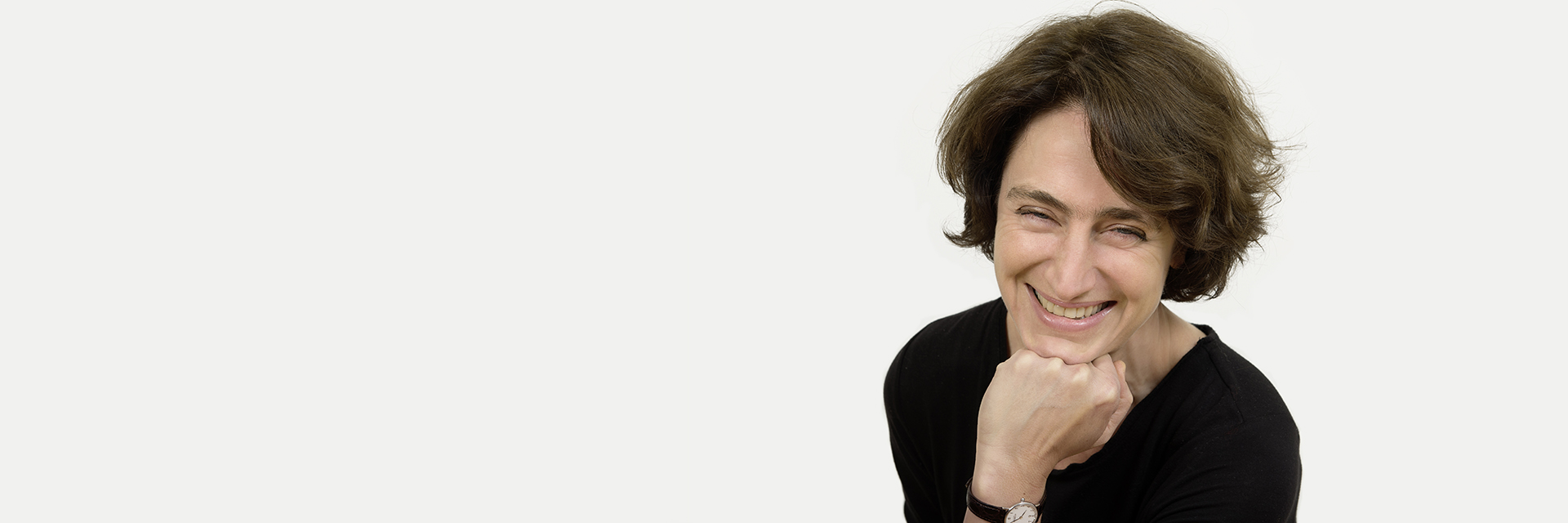Geneviève Strosser is one of the most interesting viola players of today. As a soloist, she performs with orchestras such as the Bavarian Radio Symphony , the Gewandhaus Leipzig , Ensemble Resonanz, NDR Elbphilharmonie, the Tokyo Symphony , La Verdi Milano, SWR, WDR, Residentie Orchester Den Haag, Budapest Festival Orchestra, Orchestre Philharmonique de Strasbourg, under the direction of Peter Eötvös, Brad Lubman, Heinz Holliger, Bas Wiegers, Emilio Pomarico, Stefan Asbury. She is regularly invited to give recitals in France, Italy, Germany, Poland, Switzerland.
Geneviève Strosser is also a fervent advocate of the music of today. Demonstrating a great eclectism in her aesthetic choices, she is one of the most recognized and sought-after violists in the repertoire of the 20th and 21st century. She premieres numerous pieces and she works with composers such as Helmut Lachenmann, Franco Donatoni, Heinz Holliger, Isabel Mundry, Alberto Posadas, Peter Eötvös, George Benjamin.
Stefano Gervasoni, Hugues Dufourt, Laurent Cuniot have each dedicated a viola concerto to her.
Geneviève plays with all the major european modern music ensembles, under the direction of Pierre Boulez, Oliver Knussen, Sylvain Cambreling, Jonathan Nott, George Benjamin. She was a member of Ensemble Modern and Ensemble Recherche.
Her play inspires more particularly Georges Aperghis who writes several solo and chamber music pieces for her. She takes part in three of his musical theater pieces, Commentaires, Machinations, and Un Temps Bis. Through this intense collaboration with Georges Aperghis, she develops as well a repertoire where she appears on stage using her voice.
During 10 years, Geneviève Strosser played in the Chamber Orchestra of Europe with Nikolaus Harnoncourt, Claudio Abbado, Carlo Maria Giulini, Sir Georg Solti among others. She is nowadays regularly invited as guest principal viola in orchestras including the Philharmonia Orchestra, BBC Wales, Orchestre National de France, Sinfonieorchester Basel and Orchestre du Théâtre de la Monnaie Bruxelles. Geneviève Strosser has been member of the Vellinger String Quartet in London (with Gordan Nikolitch, Philippe Honoré, Sally Pendlebury).
Her portrait CD is released by the label Aeon , other CDs appear at ECM, Kairos, Hungaroton Classic.
Alongside her concert activity, Geneviève is also a dedicated and demanded teacher. She has taught in Trinity College of Music, in Conservatoire National Supérieur de Musique et de Danse de Paris. Since 2004 she is professor for viola at the Basel Musikhochschule in Switzerland. She gives regularly master-classes and workshops in Europa.
Geneviève Strosser was born in Strasbourg, studied viola with Claude Ducrocq, then in Conservatoire National Supérieur de Musique et de Danse de Paris with Serge Collot and Jean Sulem. She benefited as well from the teaching of Nobuko Imai, Yuri Bashmet, Bruno Giuranna, György Kurtág.
She plays a viola made by Matthias Albani in 1660.Geneviève Strosser is one of the most interesting viola players of today.
